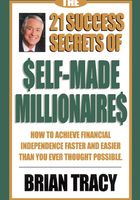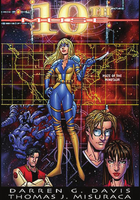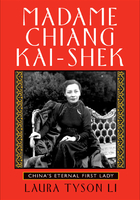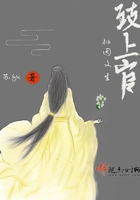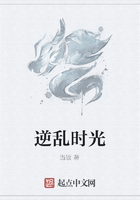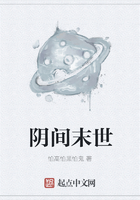History has shown that when societies fall apart, they fray first from the bottom, and then the top falls inward. So it is an article of common sense to me that we all need to work hard to strengthen the so-called bottom of our society. Particularly because this is the group that has always made up the true strivers of society.
The bottom is where society's builders come from every hundred years or so. We must once again become a Nation of Builders.
We must continue to work to revitalize hope and a sense of opportunity for the people at the bottom—the people for whom the system is not currently working—to create a pathway forward. Expanding opportunity, providing a level playing field where the rules are published and there exists fair play for all, and ultimately providing the tools and essential services for the true empowerment of the person—these are the aims of Operation HOPE.
Providing dignity for all. Building an economy for all. These and more are the building blocks of hope.
We live today in strained and trying times, from racial tensions and poverty in the United States, to immigrant tensions and poverty in Europe, to military tensions and poverty in the Middle East, to abusive tensions and poverty in Latin America, to authoritarian tensions and poverty throughout large parts of Asia and the African continent. And then you have a toxic mix of these things in many truly troubled parts of the world. But consistent among all the regions of the world is the challenge of poverty.
The poverty I speak of is different than the poverty you were taught about in school or you hear about in the news. The poverty you were taught about is what I call “sustenance poverty,” a numerical understanding of at what level the available food, shelter, and health care is simply not enough. Beyond solving for the critically important human dignity areas of hunger, shelter, and other basic life necessities, the sort of poverty I speak of here is the most devastating to the human spirit.
This poverty, which I first outlined in the HOPE Doctrine on Poverty in How the Poor Can Save Capitalism, is first and foremost one of lost confidence and devastated esteem (the first 50 percent).
Bad role models and a negative, repressive environment follow (the next 25 percent).
The final 25 percent consists of a lack of aspiration, which is a code word for hope, and no clear path to mainstream opportunity.
The most dangerous person in the world is a person with no hope.
A poverty of the soul and spirit perverts the good direction of a person, leading to a whole host of bad things, including depression and lost hope. This type of poverty is dangerous to the very fabric of a sustainable global society. It is the one thing that works against our own well-being in the world the most.
I formed Operation HOPE to combat poverty in all its guises and forms.
The HOPE Doctrine on Wealth
This book is my view of the world—its problems and its possibilities—through an economic lens. As I unpack the book, I will refer to the commonly used word capital in a different way. The word capital comes from the Latin root word capita or “knowledge in the head.” In other words, capital at its core has nothing to do with money. And, by the way, neither does true, sustainable wealth.
If I give a homeless man a million dollars, he will be broke in six months. If I observe a rich man with no “knowledge in the head,” I will find him broke within a generation or less. As an early English proverb states, “A fool and his money are soon parted.”
And so, in this book, I present a new HOPE Doctrine on Wealth, outlined below and discussed at length later in the book.
True wealth has little to do with money. My own wealth, as an example, came from my embrace of the free-enterprise system, my opportunity mind-set, my critically important relationship capital, my entrepreneurial hustle, and finally my unwavering belief in myself—my spiritual capital. I unpack all of this in the book.
You will find that the wealthy in the world possess confidence and self-esteem (the first 50 percent of true wealth).
Either through their natural family or people they've met along the way, they all also have good role models and an enabling environment (the next 25 percent).
Finally, they have high aspirations (hope), and they all generally see opportunity everywhere (the last 25 percent).
Together, these make up a formula for a new and achievable HOPE Doctrine on Wealth.
But how do people get there?
What are the building blocks and the steps forward when almost none of these enabling factors are present in your life?
What is the magic sauce that the wealthy and successful have that the struggling classes somehow missed out on?
Certainly, it is not because one group is better than the other. Because they are not. I have seen brilliant men and women who are homeless, and I have seen idiots and fools with money.
The missing sauce is the Memo.
What Is the Memo and Who Didn't Get It?
A super majority of people here in the United States and around the world have one thing in common: They never got what I call “the Memo.” They were never told how this world actually works.
How do you prosper? How do you excel? At a more defensive and basic level, how do you protect yourself from societal injustices and a lack of fair play in the twenty-first century?
These are questions I address directly in this book (it's less of a “how-to” and more of a “how-to-think”).
While I've placed the full version of the Memo at the beginning of the book, everything you really need to know can be summed up in just a couple of sentences:
Your power comes from economic independence, which is also what protects you against social injustice, economic manipulation, and profiling on all levels. Nobody is going to give you that power. You must gain it for yourself. Don't waste time on anger; instead, use your inner capital to level the playing field.
This super majority of people who never got the Memo make up what I call the Invisible Class. They come in all shapes, colors, and sizes.
The Invisible Class includes American urban youth with too much time on their hands. Even when they have a real passion for success and a desire for economic freedom, they don't have enough education to differentiate themselves in a market economy. Worst of all, they don't possess enough real opportunity in their lives to divert their attention from the dangerous and life-altering call of the streets.
It includes rural adults in small towns with a high school education, good hands, and a hearty work ethic that fifty years ago would have earned them a “family wage” with blue-collar skills. But these “assets” provide not much of any real aspirational value today.
They are residents of the poor and disconnected suburbs in cities throughout Europe. I am talking about people in the areas right outside of Paris and London who have rioted in recent years against the changes they see happening to their way of living.
I am talking about large swaths of people under the age of twenty-five in the Middle East and North Africa region—increasingly, the majority of the populations in countries such as Saudi Arabia and Morocco. Young, educated, Internet-connected, jobless, and frustrated.
The Invisible Class is the immigrants flooding into countries from civil war–ravaged lands the world over.
The Invisible Class includes gang members and gang organizers. They are the illegal, unethical entrepreneurs that the world knows to be drug dealers. Dumb (in terms of their business plans and chosen toxic professions), but far from stupid.
Some members of the Invisible Class join ISIS because they don't fit in anywhere else and resent what feels like the unfairness of the world.
The Invisible Class also includes the struggling American middle class, people making an average of $50,000 a year and still having “too much month at the end of their money.”
The Invisible Class is people who are outside of the economic system of success, and they don't really know why, so understandably they get frustrated by it. They are angry with it. They don't know how to get ahead in the midst of the growing global competition for jobs and opportunity.
In the United States, for example, these are people who are not truly “seen” by the economy, by politicians, by public policy makers, by big business interests, or even largely by academics and the media. Worst of all, increasingly, they don't even see themselves. They don't see their own potential. They—like the aspirational nation they live in—have lost what I call their “storyline.” They have lost connection with that special sauce in America that made this nation successful in the first place. They have totally disconnected from the fact that most of the wealth in this nation and in almost every other developed country in the world (with the exception of wealth through government contracting or crime) came from poor people.
The Invisible Class is people who are experiencing a twenty-first-century crisis of confidence and personal faith, which is impacting their self-esteem.
People in this group are giving in to fear and giving up hope that they can realize their dreams. They don't even think that their children will do better than they have. Truth be told, they are pretty confident that their children will do worse.
People in the Invisible Class don't feel seen, and, this I know for sure, everyone wants to be seen. Everyone wants to know that they count. They want to know that they matter and that what they believe, do, and think is important.
This group equals more than 150 million people in the United States of America, and more than five billion of the world's seven billion population around the world.
These are people—black, white, brown, red, or yellow—who never got the Memo.
The people in this group have a lot in common (despite racial differences), but they have been pitted against each other.
“Someone (other than me) has to be the one to blame for the mess called my life,” goes the narrative, which plays on deep fears of a class environment and standards of living in constant decline.
This narrative is offensive to the soul, as it gets each subgroup further and further from the essential truths about their respective lives, truths needed for a reawakening of their potential.
Who Is This Book For?
In writing this book, my demographic changed. It expanded.
I wrote this book because it sticks in my brain that the wealthiest eighty-five individuals have more wealth than 3.5 billion people on the planet, and this is simply not sustainable. It is immoral. It is not good—even for the wealthy that belong to the club of eighty-five.
Even more troubling to me, in the United States, the wealthiest 1 percent captured 95 percent of the post–financial crisis growth since 2009, while the bottom 90 percent became poorer.
This book is for the bottom 90 percent.
It is not just for people with low credit scores in rundown neighborhoods. It is for everyone who is struggling. I am speaking to black and white, rich and poor, Republican and Democrat, anyone who is seeing their life seep away—and wants their dream back.
This book is for you no matter where you are. You may have gotten one or two of the five rules of economic independence, but you still don't feel economically independent. You may have a 725 credit score, but you're sitting at your computer all day and your relationships are dwindling, and you're unable to get ahead. You may be sitting there thinking, “If I'm doing all the right things and still struggling, then the system has to be rigged.”
No, actually, there's just some important stuff nobody told you. Nobody gave you the Memo.
I wrote this book for you.
In looking forward toward solutions for us all, I don't normally address issues of race and division. But in this instance I believe that I must speak to them, as they are tied to both our history and our shared future. I need to address them before we can move forward.
This book is for everyone, certainly for the majority of people in the world of every race living from paycheck to paycheck—everyone with too much month at the end of their money, including the struggling middle class. But I also speak directly here to Black America because I am convinced that more than any other race we have been almost violently harmed by not getting the original Memo.
This was not the way it was supposed to happen after the Emancipation Proclamation. The first Memo for black Americans dates back to 1865 and President Lincoln's vision for a “freed man's bank” with the radical mission to teach freed slaves about money, to introduce them to the free-enterprise system.
Lincoln and Frederick Douglass knew that true freedom for freed slaves relied on self-determination and that you cannot “self-determine” in the modern world without understanding business and capitalism. Or to quote civil rights leader, and my mentor, Andrew Young, “To live in a system of free enterprise and to not understand free enterprise must be the very definition of slavery.”
The partnership between Lincoln and Douglass was sidetracked due to Lincoln's assassination, so I have decided to pick their work up today, that is, to teach the basic rules of capital and economic independence to those who most need to know them.
It is easy to get angry and frustrated. And there are good reasons, too. But none of that will help you. None of that will give you economic power.
Instead, turn your anger into positive energy.
Consider a suit maker who didn't know he could ever be a business owner by the name of Ryan Taylor. He was an early client of Operation HOPE, and I first wrote about him in How the Poor Can Save Capitalism.
Ryan came to me as a young man with the dream of working for a New York fashion house, but I had to tell him straight out that he would probably never be hired by any of them. It so happens that he is African American, but you could also say that he didn't have the right relationship capital to be seen. He was a member of the Invisible Class.
No one knew him in the fashion world, which is a closed loop of relationships like no other. They hook up their friends and their friends' friends, the people they know and who look like them. I told him not to get mad about this, that this was the way of the world.
I told him he should focus on writing checks, not cashing them. Become the owner of a fashion house of his own versus trying to work for someone else who didn't really want him.
Ryan took the time to secure his knowledge and understanding of how money and the free-enterprise system worked. He raised his credit score over several months so we could get him approved for a small bank loan for his scheduled start-up capital. He built up his inner confidence and his belief in himself and his abilities.
He stepped out of the Invisible Class forever and began to win. He got the Memo, and today I buy my business suits from Ryan Taylor.
This book forces you to look at some of the most controversial aspects of life through an economic lens and from a nonemotional perspective, just like Ryan did.
And now it's time to unpack the game, to unpack real power, and then to repack it—with a focus on the Invisible Class. I guarantee you, the game is not what you think.
Let's learn to win it.


